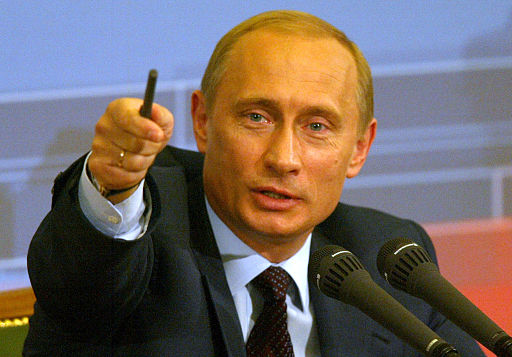
March 27, 2017; New York Times
Last Sunday, protests against alleged corruption in the Russian federal government erupted simultaneously in nearly 100 cities across the country and in London, Prague, Basel, and Bonn. The demonstrations were the largest outpouring of anti-Kremlin sentiment since the Snow Revolution protests in Moscow between 2011 and 2013, the root of the hostility between Putin and Hillary Clinton that allegedly disrupted the 2016 U.S. presidential election.
The protests on Sunday were triggered by the apparent indifference of the Russian authorities to the investigative 50-minute documentary, He Is Not Dimon To You. The film by Alexei Navalny and the Anti-Corruption Foundation was posted on YouTube on March 2nd. It received 1.5 million views by the first day and more than 14.3 million views as of this writing.
Instead of directly confronting Putin, Navalny shrewdly focused his film on the alleged corrupt affairs of the much-disliked Prime Minister of Russia, Dmitry Medvedev. The film alleges, among other crimes, that Medvedev embezzled an estimated $1.2 billion. The film is named after an interview with Medvedev’s press secretary. She criticized the use of the nickname “Dimon” when speaking about Medvedev on social media. In Russian, Dimon is a nickname like “Jim” for “James” in English, only even more familiar and, in this case, disrespectful.
On March 10th, Medvedev banned Navalny on Instagram. Navalny urged countrywide street protests on March 26th. The stated goal was to force Putin and Medvedev to respond to Navalny’s accusations. Protesters used posters, slogans, chanting, and suggestive objects like yellow rubber ducks, and sneakers. These objects were a nod to the allegation that Medvedev has a duck pond at one of his properties and a reference to Navalny’s corruption probe, which highlighted Medvedev’s apparent penchant for expensive athletic shoes.
Local police and anti-riot forces immediately confronted the protestors. The New York Times looks at how these protesters were younger than those who participated in the Snow Revolution.
A previously apathetic generation of people in their teens and 20s, most of them knowing nothing but 17 years of rule by Vladimir V. Putin, was the most striking face of the demonstrations, the biggest in years.
Sign up for our free newsletters
Subscribe to NPQ's newsletters to have our top stories delivered directly to your inbox.
By signing up, you agree to our privacy policy and terms of use, and to receive messages from NPQ and our partners.
It is far from clear whether their enthusiasm for challenging the authorities, which has suddenly provided adrenaline to Russia’s beaten-down opposition, will be short-lived or points to a new era. Nor is it clear whether the object of the anger—blatant and unabashed corruption—will infect the popularity of Mr. Putin.
Navalny’s arrest was met with slogans against the Putin regime, not just Medvedev’s resignation. Young protesters shouted “Putin begone” and “Down with the current government.” Social networks such as Facebook and VKontakte invited users to join in the mounting protests. Navalny was given 15 days in jail and a $350 fine for refusing to obey police.
The question now is how authorities will respond to this show of defiance across the country. The authorities characterized the Snow Revolution demonstrators as members of a coddled metropolitan elite, divorced from the lives and opinions of the vast majority of Russians living beyond Moscow. Sunday’s widespread protests killed that idea forever.
Most Russians receive their news from state-run television, which mostly ignored Navalny’s YouTube expose and his call for protest. But most of Russia’s young people get their news from the Internet and they are Putin’s long-term threat. As noted by the New York Times:
Samuel A. Greene, an expert on Russian protest movements at King’s College London, said Mr. Navalny had a chance to thaw Russia’s frozen political horizons and show that a post-Putin era would, at least some day, be possible.
“People—both in the Kremlin and the 80 percent or so who tell pollsters they support Putin—have all been acting for years on the assumption that the ice is very thick and will never break. What Navalny is trying to do is show that it is not, and will one day crack,” Mr. Greene said. “Once people begin to believe the ice is in fact thin, it doesn’t matter how thick it really is, and everything can change very suddenly.”
—James Schaffer













